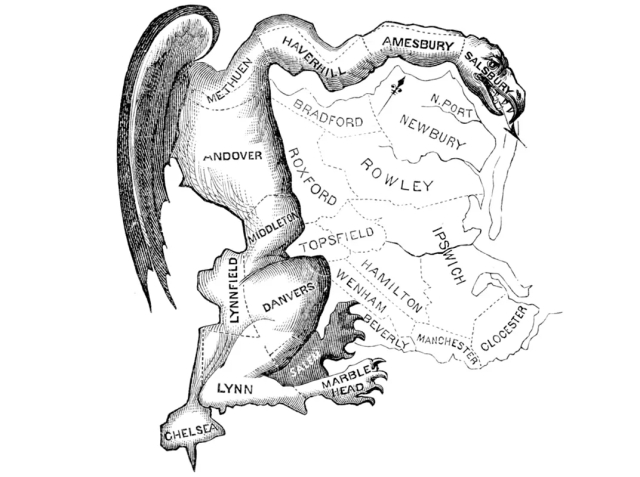democrats want to "fix" imaginary gerrymandering with real gerrymandering

Gerrymandering.
It’s the Democrats new answer for everything.
Traffic was bad. Gerrymandering.
The pancakes were cold. Gerrymandering.
We didn’t win the election. Gerrymandering.
It’s the new breakfast cereal for today’s Democratic party. They wish it was Lucky Charms, but unluckily for them, candidates, campaigns, and issues matter.
A recent column by former Columbus Dispatch Co-Publisher and former State Representative Mike Curtin, a Columbus Democrat, was yet another unsurprising example of the media’s effort to convince voters that the reforms they approved in 2015 and 2018 aren’t fair to, you guessed it, Democrats.
Curtin accused the Republicans of a “bait and switch,” thwarting the will of more than 70% of Ohioans who passed two Constitutional Amendments reforming the redistricting process for both the General Assembly and Ohio’s Congressional districts. He blamed “statehouse leaders” who “ignored repeated Ohio Supreme Court rulings…”
What he failed to mention was that the Ohio Supreme Court’s rulings were based on a series of 4-to-3 decisions from a deeply divided court, with a majority led by the person now conducting the campaign to change the process to guarantee fixed wins for the left. Or that she tried to force a separate branch of government to draw maps based on criteria that doesn’t appear in the Constitution as approved by the voters.
This problem was compounded by the fact that good faith negotiations were impeded by far-left organizations like the National Democratic Redistricting Commission (NDRC) headed by Barack Obama’s Attorney General Eric Holder. Make no mistake, the NDRC and its far-left Ohio advocacy groups pressured state Democrats to sabotage the process and good faith negotiations, then blamed Republicans through an all-too-complicit media. And if they didn’t comply, those Democrats would face a well-financed opponent in the primary.
When the United States Supreme Court finally showed these groups the hand writing on the wall of justice, state Democrats were free to negotiate in good faith, and the groups that filed the lawsuits suddenly decided that both the Congressional map and the maps for the General Assembly were okay.
In fact, this fall the Redistricting Commission voted 7-0 to approve new maps for the General Assembly that did the following:
• Produced compact districts following the requirements under the law.
• Kept all the big cities within one district (with the exception of Columbus, which surpassed the population limit.)
• Ended the sprawling, oddly shaped districts like the “Snake on the Lake.”
In the end, good faith negotiations created opportunities for Democrats to be competitive and potentially win more.
Of course, that’s where candidates, campaigns, and issues matter.
That’s the difference, and how competitive districts are won.
Currently, Democrats have an advantage in 15 Senate Districts. However, Republicans won 8 of those districts. If you can't even win in the districts where you are favored, then gerrymandering is not your problem.
You don’t see Eric Holder’s NDRC filing lawsuit after lawsuit in California, Michigan or Maryland. Wonder why? Well, because the system, to use Curtin’s words, is clearly “rigged” to help Democrats in spite of the wonderful citizen commissions he promotes.
Who appoints citizen commissions? Buried somewhere within the 200 page ballot plan pushed by former Chief Justice Maureen O’Connor, you learn it would be retired judges. You’ve heard the term judicial activism, well, wait until it is backed with millions of dollars in out-of-state campaign money organized by these same far-left groups.
In reality, Ohio voters already told these ultra-liberal groups what they thought of their gerrymandering narrative in November of 2022. They told them to get lost, by electing Republicans to every statewide office in a landslide, and by denying their effort to ordain a Democrat as Chief Justice who made her entire campaign about, you guessed it, gerrymandering.
To be fair, Mike Curtin is a respected statehouse historian and very nice guy.
He’s just wrong.
